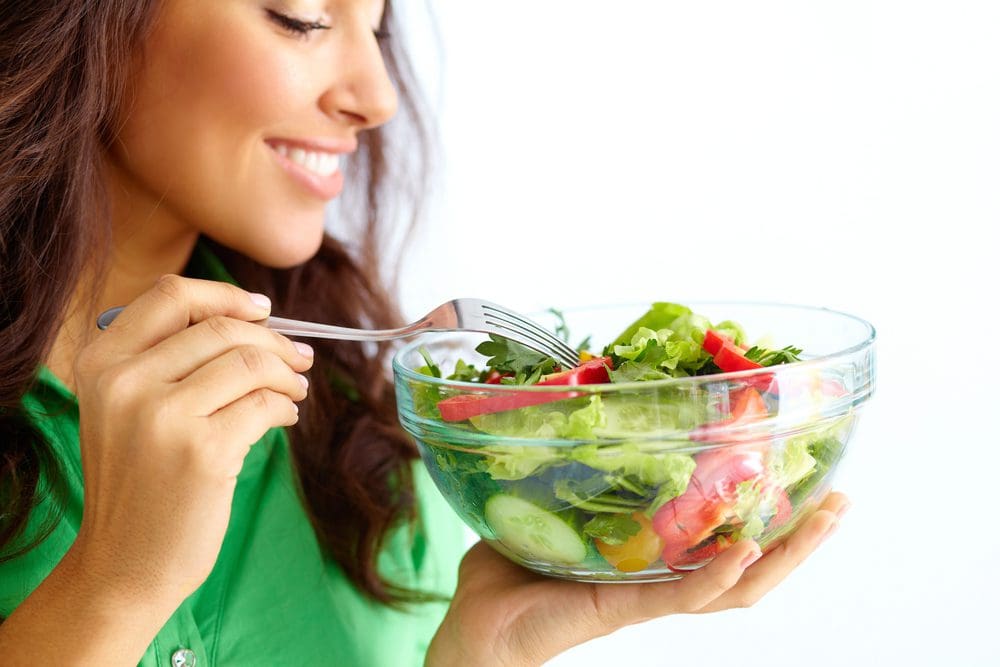Full Disclosure: Clicking on these links could mean a tiny commission for me, at no extra cost to you.
The Connection Between Diet and Mental Health
As the saying goes, you are what you eat. The brain is constantly influenced by what we eat. Nutrients from food affect brain structure and function, thus influencing our mood and anxiety levels. In fact, the gut is often called the “second brain” because of the vast network of neurons lining the gastrointestinal tract. This gut-brain axis is a two-way communication system, and the health of one can greatly influence the other. For example, about 95% of serotonin is produced in the gastrointestinal tract. Therefore, a healthy gut can contribute significantly to a healthy mind.
But that’s not all. A diet rich in antioxidants, healthy fats, vitamins, and minerals can support your brain health and alleviate anxiety symptoms. So, take a bite out of these foods that reduce anxiety fast that next time you feel your nerves spiking.

Top Foods to Reduce Anxiety Fast
Incorporating specific foods into your diet can be a simple, effective strategy to reduce anxiety. Here are some key foods known for their positive effects on mental health.
Omega-3 Rich Foods
Omega-3 fatty acids are vital for cognitive function and mental health. They help build brain cells and reduce inflammation, which might be linked to anxiety and depression.
- Salmon
- Chia seeds
- Flax seeds
- Walnuts
Magnesium-Heavy Foods
Magnesium has been shown to calm the nervous system and manage cortisol levels, which can help reduce feelings of anxiety.
- Spinach
- Bananas
- Pumpkin seeds
- Almonds
- Cashews
- Quinoa
- Dark Chocolate
- Avocado
Ready to transform your diet?
Beyond Body offers personalized wellness plans designed to help you make healthier food choices that naturally boost dopamine and keep you feeling great. Don’t miss out on our exclusive discount up to 50% off – start your journey to a happier, healthier you today! Visit Beyond Body and claim your discount now!
Antioxidant-Rich Berries
Berries are high in antioxidants, which help manage inflammation associated with chronic stress and anxiety.
- Blueberries
- Strawberries
- Raspberries
- Blackberries
- Cherries
Herbs for Anxiety
Certain herbs have been used traditionally to alleviate stress and anxiety. Here are some popular choices of herbs for anxiety relief:
- Green Tea
- Chamomile
- Lavender
- Lemon Balm
- Ashwagandha
Probiotic Foods and Gut Health
The gut-brain axis plays a critical role in mental health. Probiotics help maintain gut health and can influence brain function, thereby affecting mood and anxiety levels.
- Yogurt
- Kefir
- Sauerkraut
- Pickles
- Cheese (aged and fermented, like Gouda, cheddar, and Swiss).
Foods to Avoid to Reduce Anxiety
Certain foods can exacerbate anxiety symptoms and should be limited or avoided.
- High Sugar Foods
- Caffeine
- Alcohol
- Processed Foods
- Fried Foods
- Artificial Sweeteners
- Energy Drinks
Practical Tips for an Anxiety-Reducing Diet
FAQ
- Can changing my diet really help reduce anxiety? Yes, dietary changes can significantly affect your anxiety levels. Foods rich in omega-3 fatty acids, magnesium, and antioxidants can help calm the nervous system and improve overall brain health, which may reduce symptoms of anxiety. However, diet is just one part of managing anxiety, and other treatments like therapy and medication may also be necessary.
- What are the best beverages to drink for reducing anxiety? Staying hydrated is key for managing anxiety. Water is the best choice. Herbal teas, such as chamomile or green tea, can also be beneficial due to their calming properties. It’s advisable to limit caffeine and alcohol intake, as these can increase anxiety symptoms.
- How quickly can I expect to see changes in my anxiety after adjusting my diet? The effects of dietary changes on anxiety can vary from person to person. Some might notice improvements within a few days, especially with increased hydration and reduced caffeine. However, more substantial changes, such as those from increased omega-3 fatty acids or magnesium, might take several weeks to become noticeable.
- Are there specific foods that trigger anxiety? Yes, some foods can trigger or worsen anxiety symptoms. These include caffeine, sugary foods, and highly processed foods, which can lead to blood sugar spikes and increased physiological stress. Identifying personal triggers can be a useful step towards managing anxiety.
- Is there a specific diet plan recommended for anxiety? While there’s no one-size-fits-all diet for anxiety, diets that emphasize whole foods, lean proteins, plenty of fruits and vegetables, whole grains, and healthy fats (like the Mediterranean diet) have been associated with lower levels of anxiety.
- Can supplements replace the need for whole foods in managing anxiety? While supplements can be beneficial, especially if you have specific nutritional deficiencies, they should not replace whole foods. Whole foods provide a complex array of nutrients and dietary fiber, which contribute to overall health and help manage anxiety more effectively than supplements alone. Always consult with a healthcare provider before starting any new supplement regimen.










